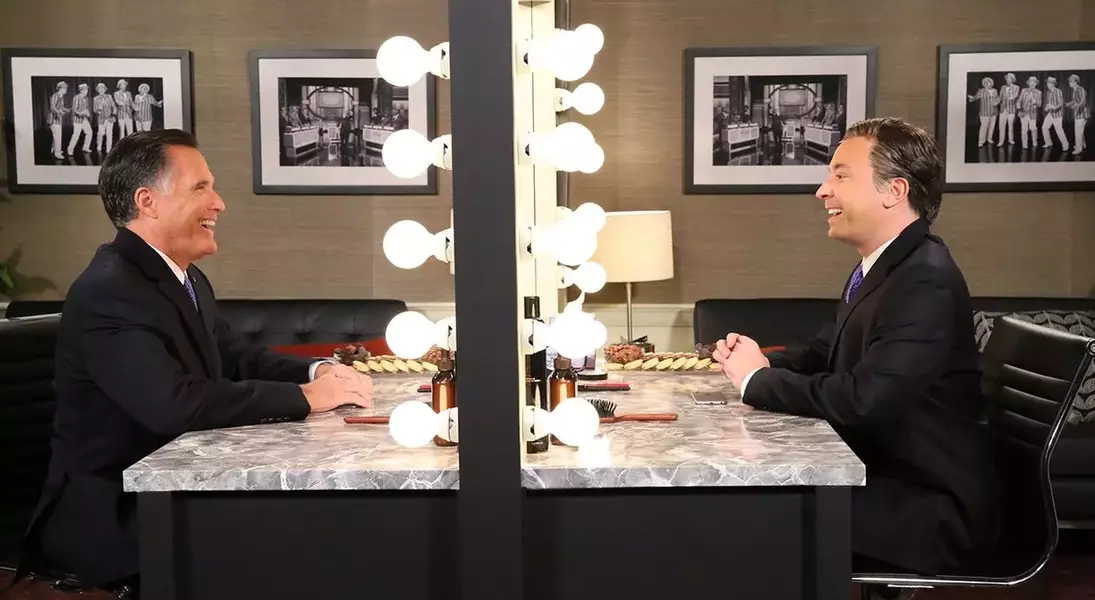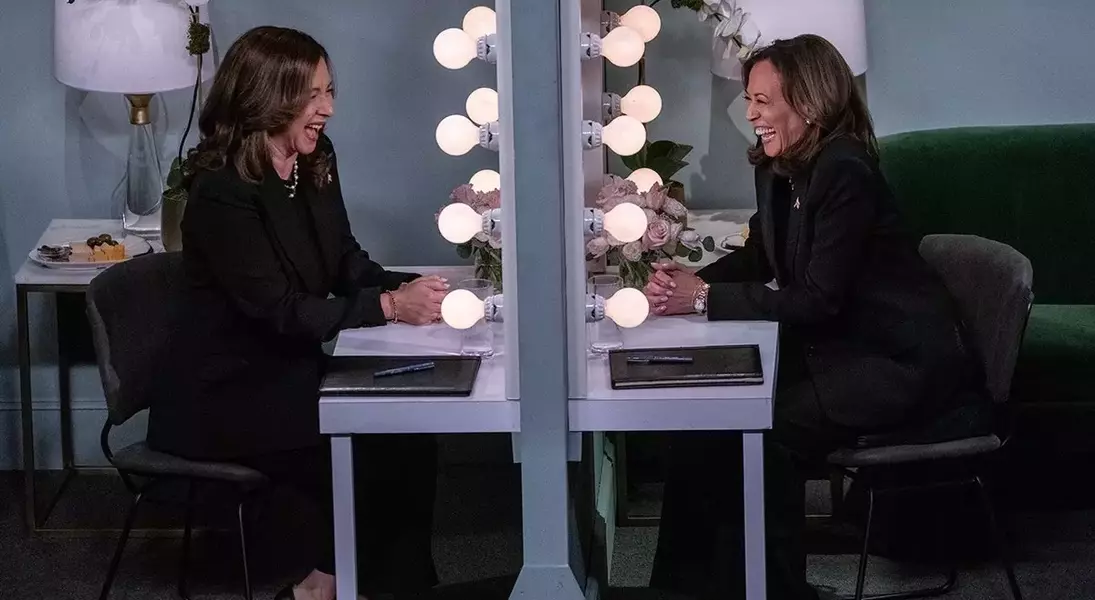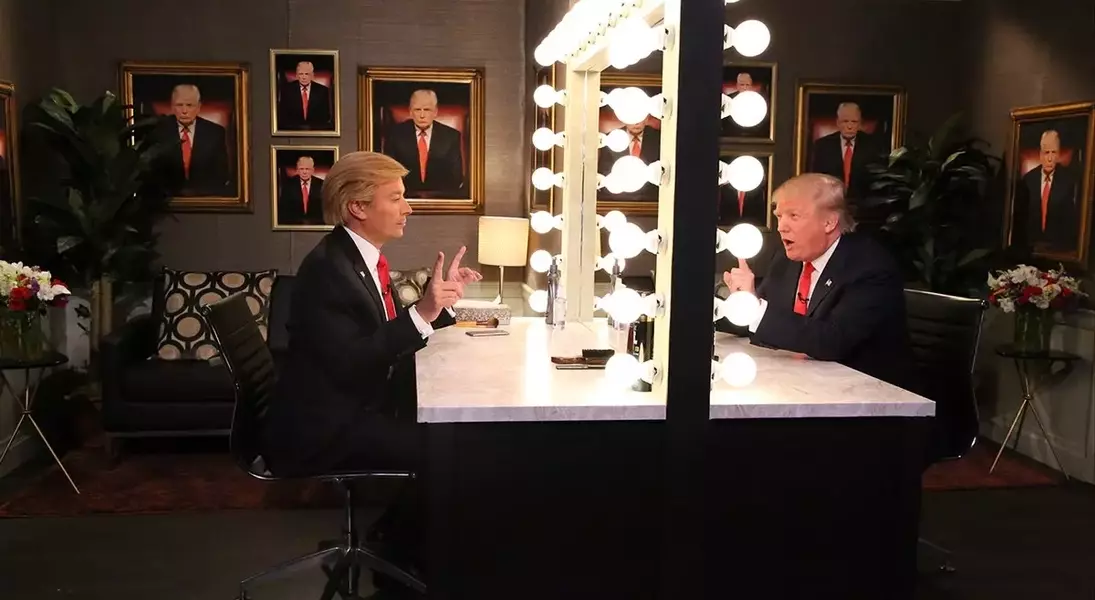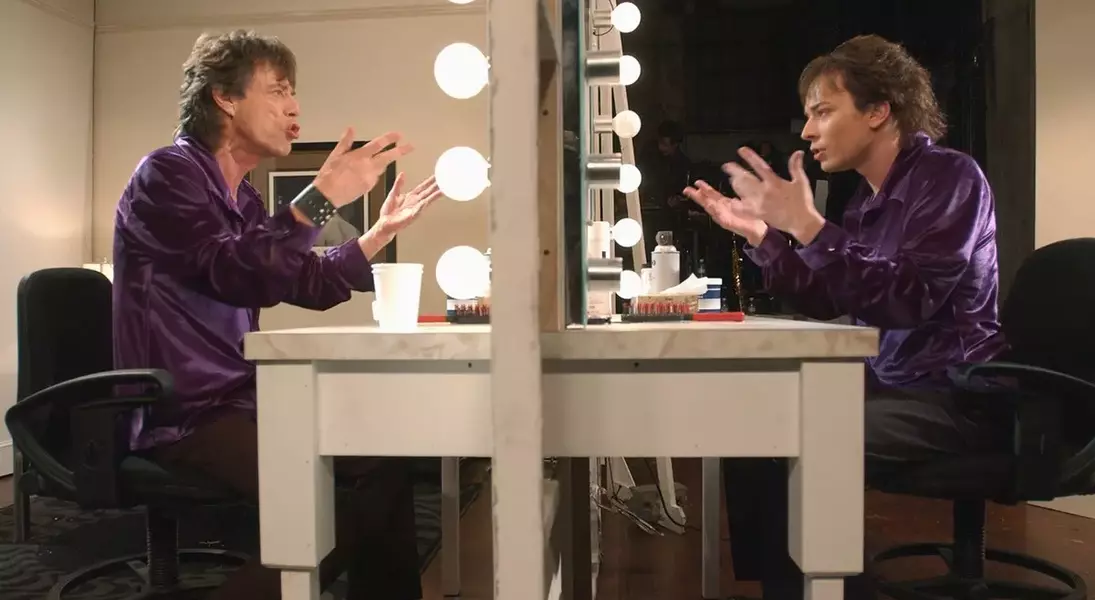Vice President Kamala Harris' surprise appearance on the final episode of "Saturday Night Live" before the presidential election has ignited a social media debate. Some viewers claim the skit mirrored a similar sketch featuring former President Donald Trump, while others argue it's a longstanding comedic tradition.
Navigating the Mirrored Reflections of Political Satire
Kamala Harris Channels Her SNL Doppelganger
In the sketch, Vice President Harris appears as a reflection in a mirror, offering advice to her impersonator, Maya Rudolph. The scene unfolds with Rudolph's Harris wondering aloud, "I wish I could talk to someone who's been in my shoes. You know, a Black, south Asian woman running for president. Preferably from the Bay Area." The vice president then reveals herself on the other side of the mirror, responding, "You and me both, sister."This interaction has drawn comparisons to a 2015 sketch featuring then-candidate Trump and Jimmy Fallon on "The Tonight Show." In that skit, Trump and Fallon engaged in a similar "in the mirror" dialogue. The similarities have led some social media users to accuse Harris of "ripping off" Trump's bit.Tracing the Roots of the "In the Mirror" Sketch
However, the "in the mirror" sketch format is not a new invention. Fallon has performed variations of this comedic device with various high-profile guests over the years, including Mick Jagger and Mitt Romney. The concept of two individuals engaging in a mirrored conversation has long been a staple of comedy, dating back to classic vaudeville routines and beyond."The Tonight Show" host Jimmy Fallon has a history of utilizing the "in the mirror" sketch format, having previously performed similar skits with Mick Jagger and Mitt Romney. This suggests that the technique is not exclusive to any one political figure, but rather a well-established comedic trope.Navigating the Complexities of Political Satire
The debate surrounding Harris' SNL cameo highlights the nuances and challenges of political satire in the modern era. While some may view the sketch as a direct copy, others argue that it's a natural evolution of a longstanding comedic tradition. The line between homage and plagiarism can often be blurred, especially in the realm of political humor.Ultimately, the success of such sketches lies in their ability to captivate and entertain the audience, regardless of political affiliation. The enduring appeal of the "in the mirror" format suggests that it resonates with viewers, providing a platform for both humor and social commentary.As the political landscape continues to evolve, the role of satire and parody will undoubtedly remain a subject of ongoing discussion. The Harris-Rudolph sketch serves as a reminder that the boundaries of political comedy are constantly being tested and redefined, inviting audiences to engage in a nuanced dialogue about the intersection of humor and public discourse.You May Like






